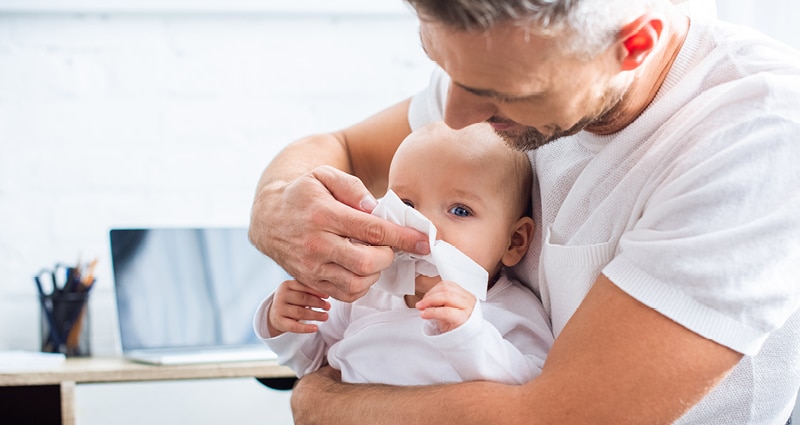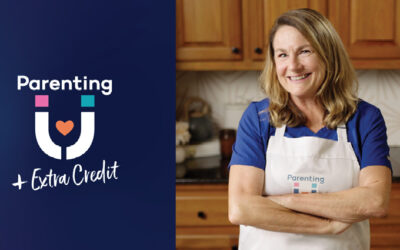Infection with respiratory syncytial virus, or RSV, is practically a rite of passage for young children. Most have been infected by age 2, according to the Centers for Disease Control and Prevention.
RSV in infants usually causes the common cold, but some can develop a more severe respiratory illness. Let’s explore some key facts about RSV in infants, including how to reduce your little one’s risk of infection.
Should You Be Worried if Your Baby Gets RSV?
RSV in infants is cause for concern and care, not panic. Most infants and children with RSV experience mild symptoms that clear up in about a week. With small airways, infants have a higher risk for severe RSV-related illnesses. RSV can cause pneumonia and bronchiolitis, which is a lower respiratory tract infection that affects small airways in the lungs. Severe illness from RSV can lead to hospitalization.
Premature infants and infants younger than 6 months are especially vulnerable to severe illness from RSV. Others at high risk include children with neuromuscular disorders, chronic lung disease, congenital heart conditions and weakened immune systems.
RSV in Infants: Know the Symptoms
Symptoms of RSV may be difficult to distinguish from those of COVID-19 or the flu. Look for cold-like symptoms, including:
- Congestion
- Cough
- Irritability
- Reduced appetite
- Runny nose
RSV may cause a fever of 100.4 F or higher, but not all infants have a fever with infection. If your baby develops bronchiolitis, they may have difficulty breathing or wheezing. Call your baby’s pediatrician if they’re wheezing or have a persistent cough, high fever or signs of dehydration.
Treatment for RSV in Infants
For many infants with RSV, the infection is mild, and the best treatment is to make them as comfortable as possible until it runs its course. Your child won’t need antibiotics, which don’t treat RSV and other viruses. These medications only treat bacterial infections.
Offer your baby small amounts of fluid frequently to prevent dehydration. Nasal congestion can make drinking difficult, so clear their nose with a saline nose spray or bulb syringe before they drink. If your child has a fever, ask their pediatrician whether you can give acetaminophen or ibuprofen. Ibuprofen is only appropriate for infants older than 6 months.
Can You Prevent RSV in Infants?
RSV isn’t always preventable, but you can do a lot to reduce your baby’s risk. Start by asking the pediatrician if a monoclonal antibody injection, which can reduce the chances of a severe RSV infection in certain high-risk infants, would be right for your child.
Other steps you can take to help protect your infant include:
- Breastfeed, if possible, because breast milk can boost your baby’s immune system.
- Cover your coughs and sneezes to help prevent germs from reaching surfaces your child might touch.
- Disinfect toys, doorknobs, countertops, electronic devices, and other objects and surfaces you and your child touch.
- Ensure your child is up to date on recommended vaccinations.
- Keep your baby away from people with cold-like symptoms.
- Wash your hands to help stop the spread of germs.
By practicing proper respiratory illness hygiene, you can reduce the chances of a severe RSV infection interrupting your baby’s play, exploration and growth.




